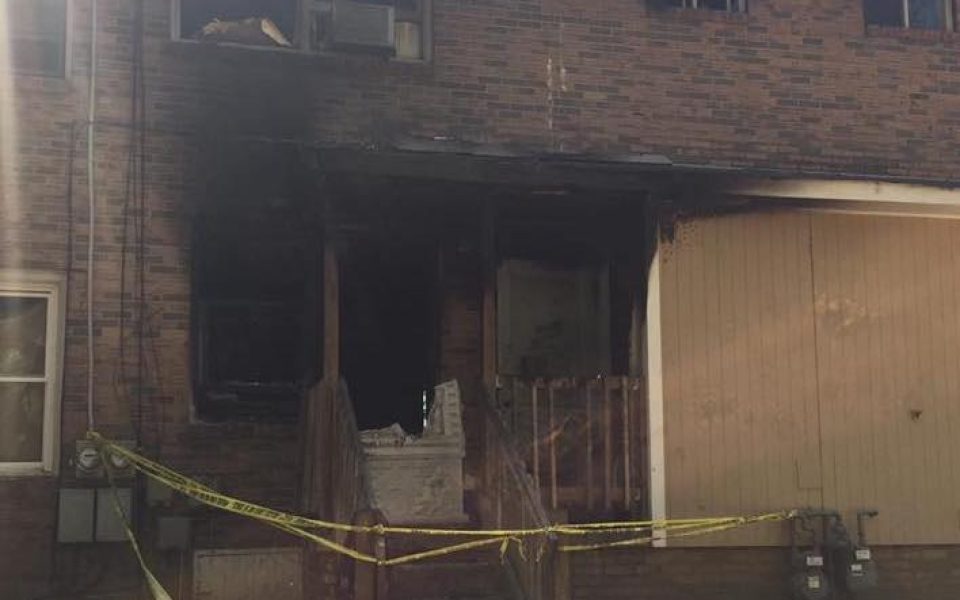No experience could be more cruel or heartbreaking for a parent to endure.
A couple from the Democratic Republic of Congo lost all five children, according to reporting by the News & Record about the horrific Heritage Apartments fire. Their mother was working an overnight shift at a chicken plant several counties away, as reported by Nancy McLaughlin. A neighbor told McLaughlin she saw the children’s father climbing the side of the building to get to a window on the second floor as fire consumed the apartment.
The fire began in the kitchen, Greensboro fire officials said. There were smoke detectors with batteries in the apartment, but they didn’t activate, Assistant Chief Dwayne Church said, adding that it’s not clear whether the batteries were dead or the detectors just malfunctioned. The fire department responded at 3:54 a.m. on May 12.
Friends and family say the children’s father repeatedly complained to management about fires breaking out around the stove, the News & Record reported. The fire department is examining the stove to try to determine the cause of the fire, but Church said there are no work orders or other physical evidence to support the claim.
Whatever the validity of the claim, the aging Heritage Apartments, which is located at the busy Summit Avenue-Cone Boulevard intersection in northeast Greensboro, has a track record. A 2008 profile by Lorraine Ahearn, then the News & Record’s metro columnist, indicates that at the time city code inspectors were “unaware that a majority of the units still had rotting floors and electrical problems.” When Ahearn visited the complex, tenants — many of them immigrants with limited command of English — eagerly invited the code inspector in to show multiple violations, including “crumbling bath tiles, broken doors, stoves and overhead fixtures that didn’t work, eaves set to collapse.”
Then, as now, Heritage Apartments was owned by the Agapion family, notorious for blighted conditions and health hazards; one led to a 2006 settlement with a Montagnard tenant whose daughter suffered from lead poisoning, according to Ahearn’s reporting.
McLaughlin’s recent piece in the News & Record reports that after the tragic fire resident Tamika Muse told Councilwoman Goldie Wells that her refrigerator hasn’t worked since she moved in three months ago. Her sink is infested with mildew, and water trickles around the sink whenever someone uses a shower in the apartment upstairs.
Wells asked why she continued to live there.
“It’s affordable,” Muse reportedly responded. “The rent is $525, and I don’t have a good background for renting. I have an eviction in my past. But they let me move in.”
We wonder why people, especially children, are forced to live in dangerous housing conditions. As the neighbor of the devastated Congolese family attests, part of the answer has to do with evictions and the limited options for people with poor credit histories. And a high number of evictions has everything to do with a lack of affordable housing.
Only two days before the five children perished at Heritage Apartments, Stephen Sills, director of the Center for Housing and Community Studies at UNCG, spoke on North Carolina Public Radio’s “The State of Things” about why Greensboro ranks No. 7 on the list of top evicting cities in the United States.
Sills’ center estimates there are 20,000 cost-burdened families in Greensboro that spend more than 30 percent of their gross income on housing.
“So they’re desperate to find any housing that they can at the lowest rate possible and are willing to take some pretty negative conditions of the properties in exchange,” he said.
The seasonal ebb and flow of evictions explains what triggers the calamity of displacement: Families don’t have any extra income to cover unexpected expenses.
“We see peaks in January, February, when they’re paying their electric bills, trying to make the decision between do I pay Duke Energy or Piedmont Natural Gas, or do I pay my rent?” Sills said. “We see stressors in the family over medical bills and transportation. And then we see a valley in the eviction rates around April as people are getting tax returns. Then the highest month: May. Kids are back out of school, the cost of childcare, the cost of food increases, and families don’t have the fat really in their budget to maintain month-to-month rents.”
The Center for Housing and Community Studies just completed an 18-month study that showed a significant correlation between neighborhoods with high numbers of evictions and those with a high number of emergency-room visits for pediatric asthma.
“The same numbers where rents are low, but poverty is high, where there’s a high proportion of renters to homeowners, and it’s the most impacted,” Sills said. “We see negative health outcomes for children. We see for adults with long-term impacts from being in food deserts and medical-supply deserts, or obesity and Type 2 diabetes.”
Affordable housing may seem like an expensive investment, but the alternative is even more costly: asthma and death by fire.
Join the First Amendment Society, a membership that goes directly to funding TCB‘s newsroom.
We believe that reporting can save the world.
The TCB First Amendment Society recognizes the vital role of a free, unfettered press with a bundling of local experiences designed to build community, and unique engagements with our newsroom that will help you understand, and shape, local journalism’s critical role in uplifting the people in our cities.
All revenue goes directly into the newsroom as reporters’ salaries and freelance commissions.


Leave a Reply